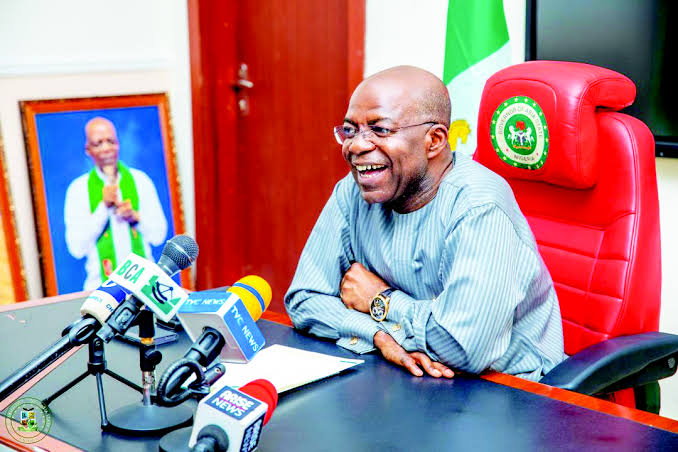Africa
Governor Otti’s Local Economy Agenda -By Chiechefulam Ikebuiro
Still, if these challenges are met, the upside is enormous. Governor Otti isn’t just proposing a procurement rule; he’s testing a model for how other states can turn their economies inward and grow from the ground up.

“We will ensure that ‘Made in Aba’ regains its lost glory, and that any product with Aba as its originating location bears the stamp of quality. We will achieve this by establishing quality assurance agencies that will enforce compliance. We will empower SMEs and artisans in the state by patronizing them. Government will not pay for the purchase of services or goods that can be made in Abia.”
That was then, Candidate Dr. Alex Chioma Otti, laying out his vision in his campaign manifesto.
At the time, In an article, of Abia 2023 and Dr Alex Otti’s Audacity, I described the manifesto as audacious- and rightly so. It signaled a break from the norm, offering a blueprint for development rooted in homegrown solutions.
On Monday, 7th April 2024, the Abia State Government announced plans to roll out a new economic and business policy framework that will promote Made in Abia products. According to the Commissioner for Information, Okey Kanu, the policy, grounded in the state’s local content law, will mandate that all goods and services needed by the state be sourced locally, wherever available. While the full policy details are expected in the coming weeks, its central principle is clear: if it can be made or done in Abia, the government won’t pay for it elsewhere.
On paper, there is much to admire in this direction. This policy insinuates a vote of confidence in local enterprise, from tailors and shoemakers in Aba to agro-processors in Umuahia and Ummuneochi, and artisans in Ohafia and Nkpa. It has the potential to stimulate massive local economic growth by redirecting government spending back into the local economy. It can lead to job creation, increased demand for local raw materials and finished products, and most importantly, renewed pride in the Made in Aba brand.
But as with any ambitious policy, the difference between success and failure will come down to execution. Without careful planning, this well-intentioned plan could stall, or worse, backfire. It must be implemented with pragmatism and flexibility
We must be cautious not to box ourselves into a corner by enforcing a blanket no-outside-procurement rule. What happens when local suppliers, knowing the government has no choice but to buy from them, start charging inflated prices? What happens when contractors cut corners because competition has disappeared? What happens when demand far exceeds the current capacity of local producers?
I hope it won’t be a rigid “Abia-only” rule, as this could create a protectionist bubble where local vendors, knowing they have guaranteed demand, stop innovating or improving. The result will be monopoly and mediocrity. The approach should be “Abia first”-prioritizing local businesses but allowing exceptions when products aren’t yet available at competitive quality or scale. The goal should be to grow local capacity, not trap Abia in a protectionist dead end.
It should go without saying that the issue of quality is addressed. The truth is, Made in Aba brand lost its prestige in the first place because of inconsistent standards. If the government forces ministries to buy local without guaranteeing quality, we’ll just entrench the same problems. Setting up a real, functioning quality control agency should be non-negotiable. We don’t want to end up with a policy that becomes an expensive exercise in distributing shoddy goods.
But perhaps the biggest hurdle is supply. I’d like to be kept righteous, but I think Abia businesses simply aren’t equipped enough to handle large government contracts, whether due to outdated equipment, lack of financing, or gaps in skills. For this policy to work, it must come with serious investment-access to low-cost loans, upgrades to industrial clusters, and training programs tailored to high-demand sectors. Otherwise, the government’s demand will outstrip what local producers can deliver, and the policy will collapse under its own weight.
Still, if these challenges are met, the upside is enormous. Governor Otti isn’t just proposing a procurement rule; he’s testing a model for how other states can turn their economies inward and grow from the ground up.
Done right, this policy could do more than restore Made in Aba- it could redefine it. But that will require building an ecosystem rooted in excellence.
As one who believes the audacity of his manifesto, I remain hopeful of this policy by Governor Otti
Time and implementation will tell.
Chiechefulam Ikebuiro
chiechefulamikebuiro@gmail.com























